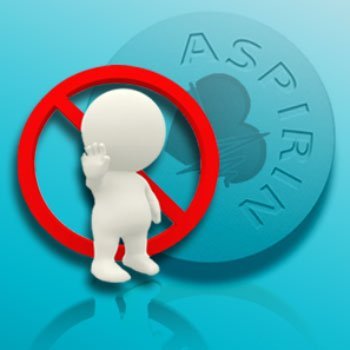You’ve heard, “An aspirin a day keeps the doctor away,” and those with risk for heart disease are often told to take a daily aspirin to mitigate their risk for heart attacks (myocardial infarction). Daily aspirin is seen as the accepted solution, and even a game changer. The topic has been hotly debated for years, but the truth has again been revealed in a recent “culture” shocking study. The question remains: what will you do with the information? Will you choose the 180 degree solution™ or continue to follow the herd?
Recent Studies Suggest that Daily Aspirin and
Heart Attack Prevention is a Myth

Breaking News: Recently released research from November 17, 2014 conducted that over five years, over 14,000 Japanese, aged 60-85 “…found no major difference in heart-related deaths or non-fatal heart attacks and strokes between people who took aspirin and those who didn't.” Study co-author Dr. Kazuyuki Shimada concludes “…primary prevention with daily low-dose aspirin does not reduce the combined risk in this population.” An aspirin a day does not prevent heart attacks: I’ve been saying this for at least ten years. Now there’s another study to prove it.
What’s worse, popping a daily aspirin could actually increase your risk of stroke. I contend if the study had extended, researchers would have likely observed an increase in stroke risk. I know we’ve been advised for years to take aspirin to lower our risk of heart attack and stroke. However, the risks of daily aspirin intake, including life-threatening bleeding, outweigh the benefits for most people. This is especially true for the elderly (75 and over) and those with no history of heart attack or stroke. In the past, I took criticism for making these statements, since I’m not a cardiologist. However, I do extensive research and take time to read the studies. The information is out there.
Unfortunately, this study will likely get brushed under the rug, and people will go about taking their aspirin each day because that is what our culture tells us to do. Taking daily aspirin is an example of an accepted culture code. A culture code is a way of understanding a culture and its impact on stereotypes, beliefs, and, as a consequence, behavior. Another example of an accepted culture code from a recent article I came across is the belief that we need anti-bacterial soaps to be clean and healthy. In reality, these toxic soaps are promoting liver tumor growth due to the antimicrobial agent triclosan, also linked to skin irritation and hormone disruption. Not to mention the devastating effects that anti-bacterial products have wrought upon our gut microbiome, a critical component to good health. If our gut is not functioning properly, we suffer from hormone problems, weight-loss resistance, auto-immunity, and more. The bottom line: we need bacteria to be healthy, a concept too few embrace because, again, it violates our culture code.
As studies like these continue to accumulate, I pray more people will wake up to the truth and change their lives before it is too late. I’ve taken the heat for going “against the grain,” which I mean quite literally, by living and teaching a lifestyle opposite of the way most Americans live. I call this lifestyle the 180 degree solution™ and it’s as simple as it sounds: do the opposite of what those around you and the media tell you to do; somehow this is where the truth lies. If everyone is making a right, make a left. Don’t buy into what everyone else is saying and doing. Open your eyes and seek the truth, you will find it.
“And you will know the truth, and the truth will set you free.” John 8:32








